ASI Performance Standard
The ASI Performance Standard defines environmental, social and governance principles and criteria, which address a broad range of sustainability issues in the aluminium value chain.
How this Standard serves the aluminium sector
The Performance Standard supports responsible supply chains by:
- Providing a common standard for the aluminium value chain on environmental, social and governance performance
- Establishing requirements that can be independently audited to provide objective evidence for the granting of ASI Certification
- Reinforcing and promoting consumer and stakeholder confidence in the aluminium sector and its products
- Serving as a broader reference for the establishment and improvement of responsible production, sourcing and material stewardship initiatives in metals and minerals supply chains.
The Performance Standard Guidance supports implementation and interpretation of the Standard.
- Change of applicability for members with Material Conversion facilities
- Facilities currently certified to Principle 4 of the Performance Standard will be required to demonstrate conformance to Principles 1-4 of the PerformanceStandard in their surveillance audit. This audit can be conducted remotely.
- Facilities which are not yet certified will be required to demonstrate conformance to Principles 1-4 in their certification and surveillance audit(s). The certification audit must be conducted on-site though the surveillance audit(s)may be conducted remotely.
- Following this phase-in period, all Facilities will be required to demonstrate conformance to the entire Performance Standard in their next recertificationAudit.
- Table 5 in the Assurance Manual specifies the Certification Scopes depending on the initial date of Certification.
- Expanded requirements for transparency and public disclosure throughout
- Harmonized frequency and triggers for policy/plan review, improved clarity on public disclosure requirements.
- Expanded requirements for environmental, social and human rights impact assessments (Criteria 2.5 and 2.6)
- A new requirement for suspended operations (Criterion 2.8)
- Revised greenhouse gas (GHG) criteria
- a training module will shortly be published to support you in the evaluation of this criteria
- Revised emissions and discharges criteria to include the Area of Influence (Criteria 6.1and 6.2)
- The inclusion of ecosystem services identification and management (Criteria 8.1 and 8.3)
- A new requirement on Protected Areas (Criterion 8.6)
- Replacement of the Women’s Rights Criterion with a Criterion on Women’s Equity and Empowerment (Criterion 9.2), as well as a strengthening of the gender lens throughout the Standard
- Expansion of Free, Prior and Informed Consent (FPIC) to new phases of operations and to alteration of mine rehabilitation and closure plan for mining operations (Criterion 9.4.)
- Expansion of FPIC to resettlement (Criterion 9.6)
- Alignment with the LME responsible sourcing requirements (Criterion 9.8)
- Refocused the Criterion from Disciplinary Practices to managing and mitigating risks of physical and psychosocial violence (Criterion 10.6)
- Significant revision and strengthening of Principle 11 Occupational Health & Safety to align with requirements of ISO 45001, to align with the management system requirements of international standards (Criteria 11.1, 11.2 and 11.3)
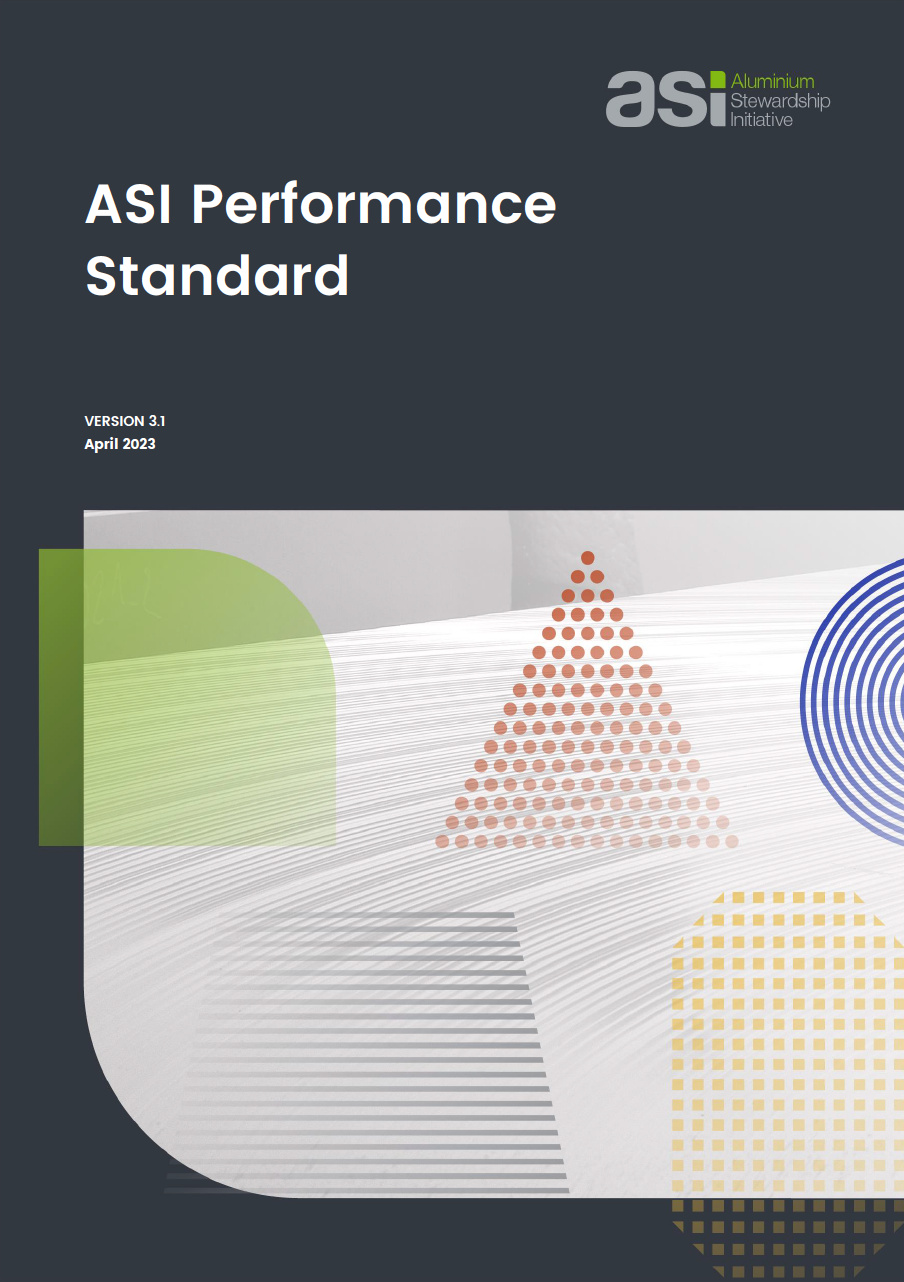
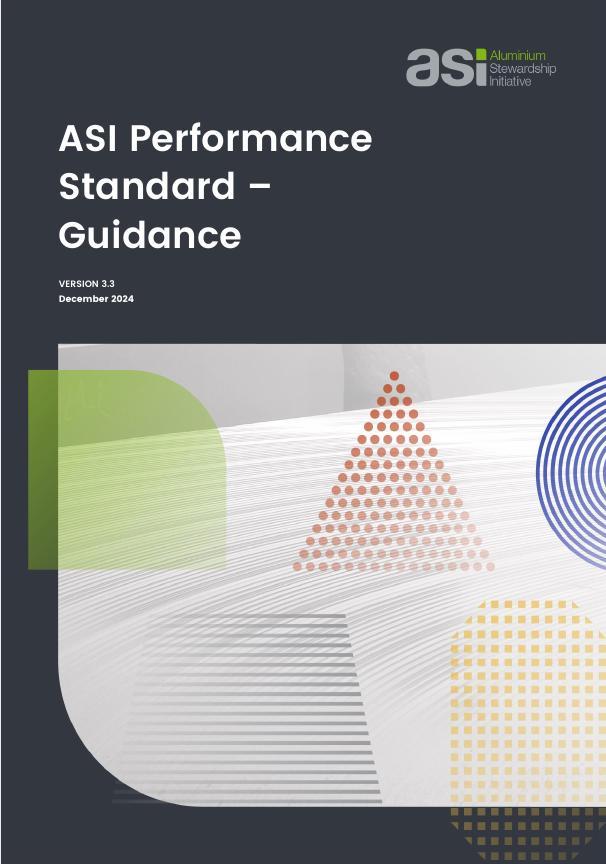
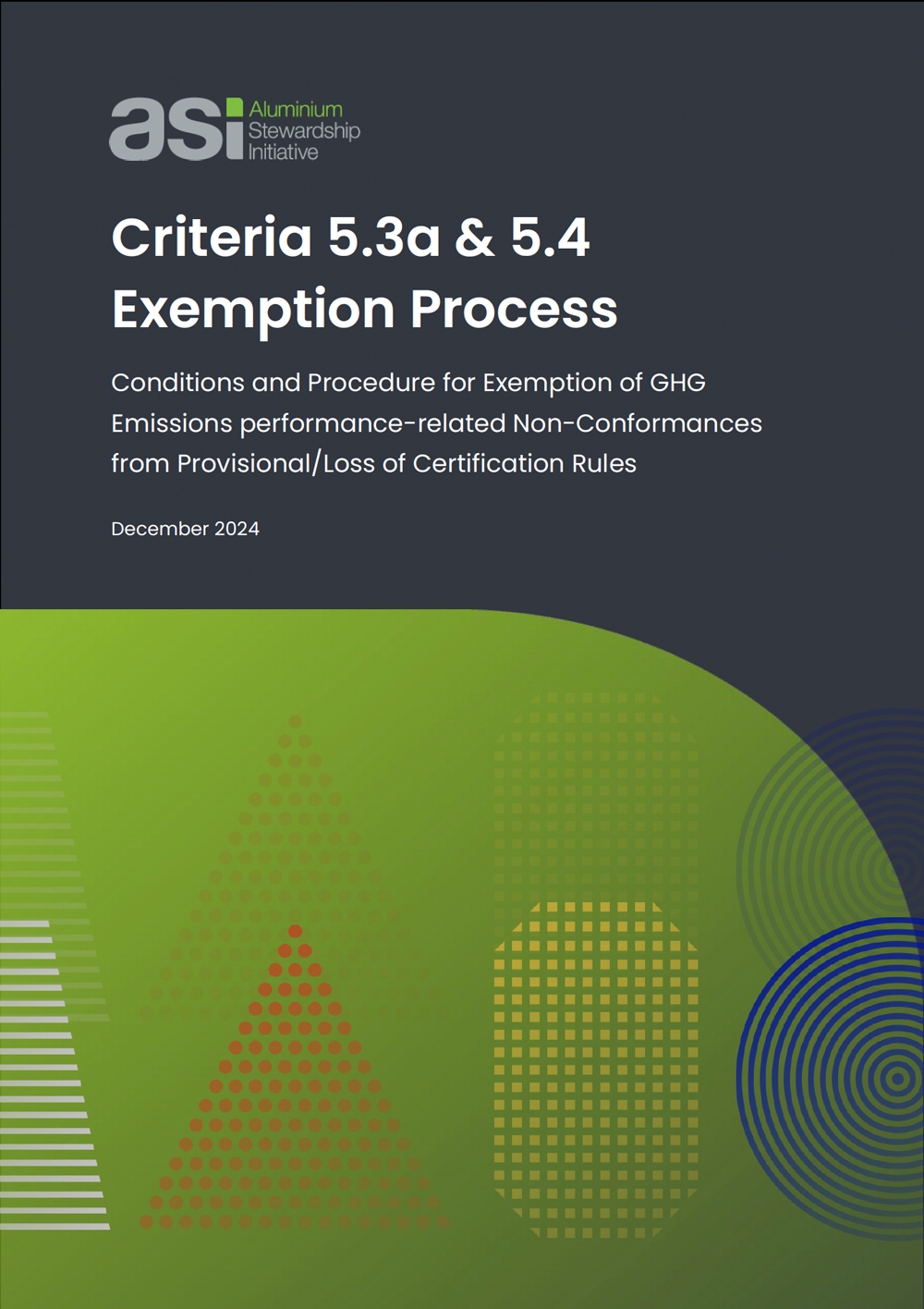
DOWNLOAD
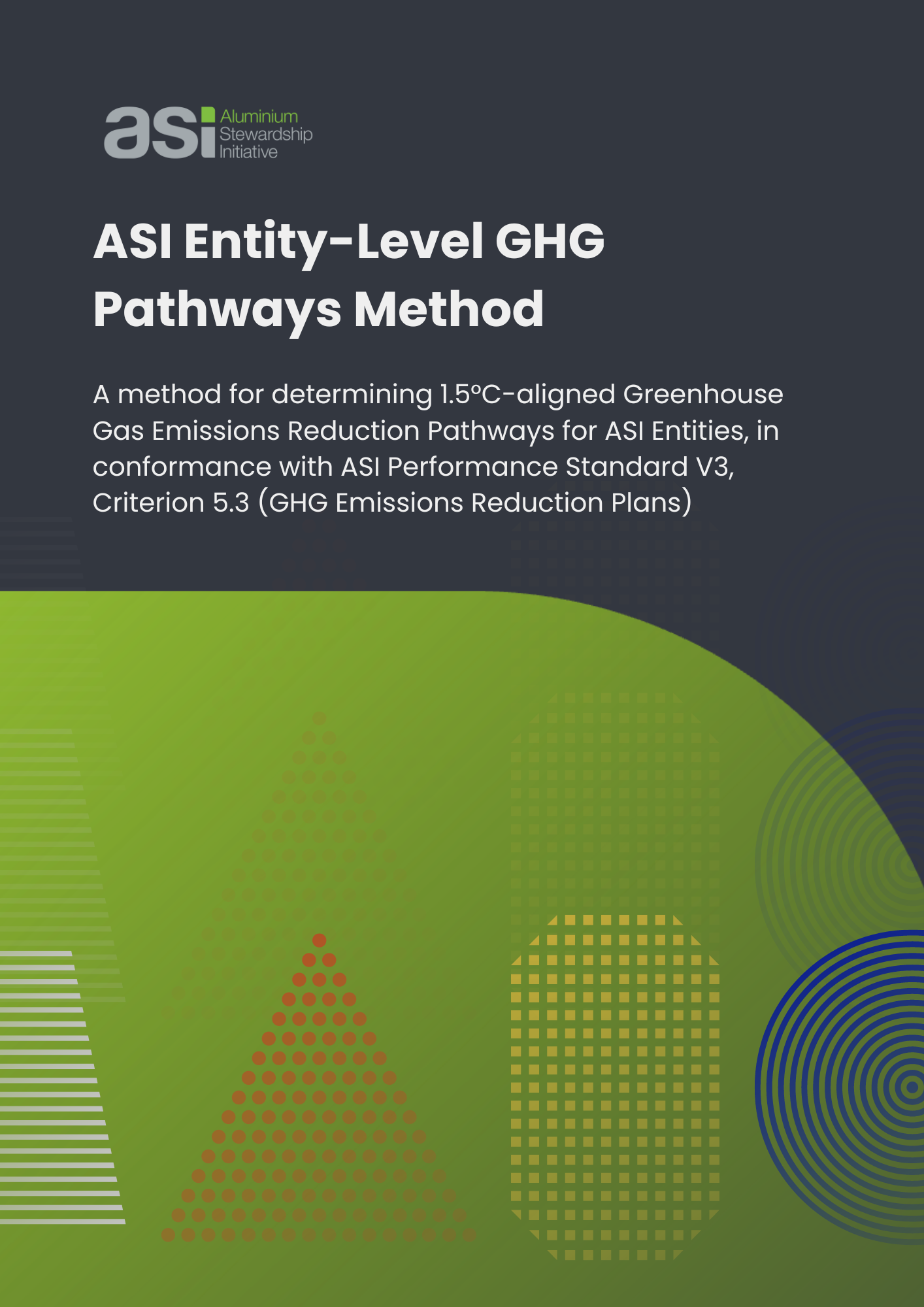
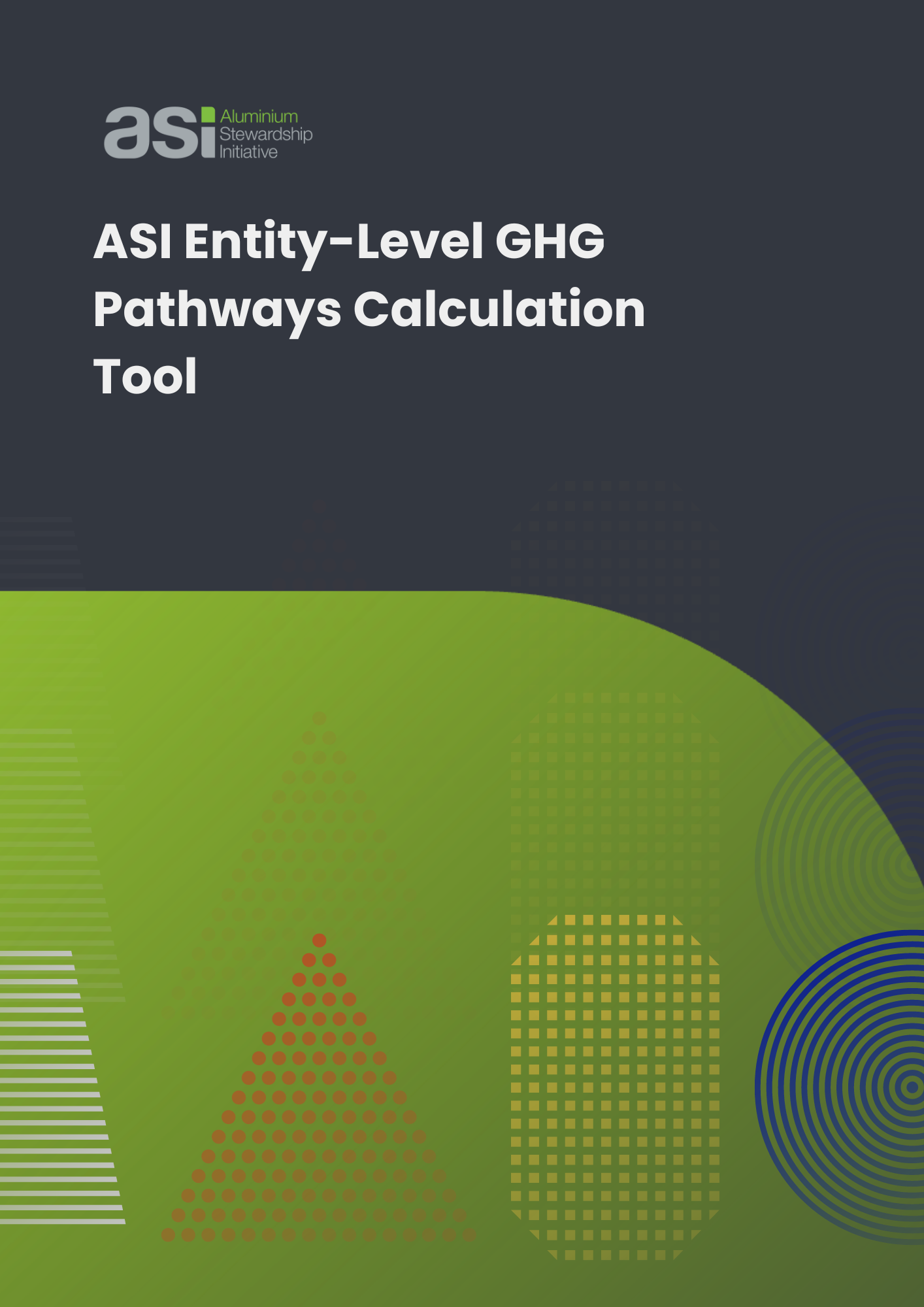
DOWNLOAD
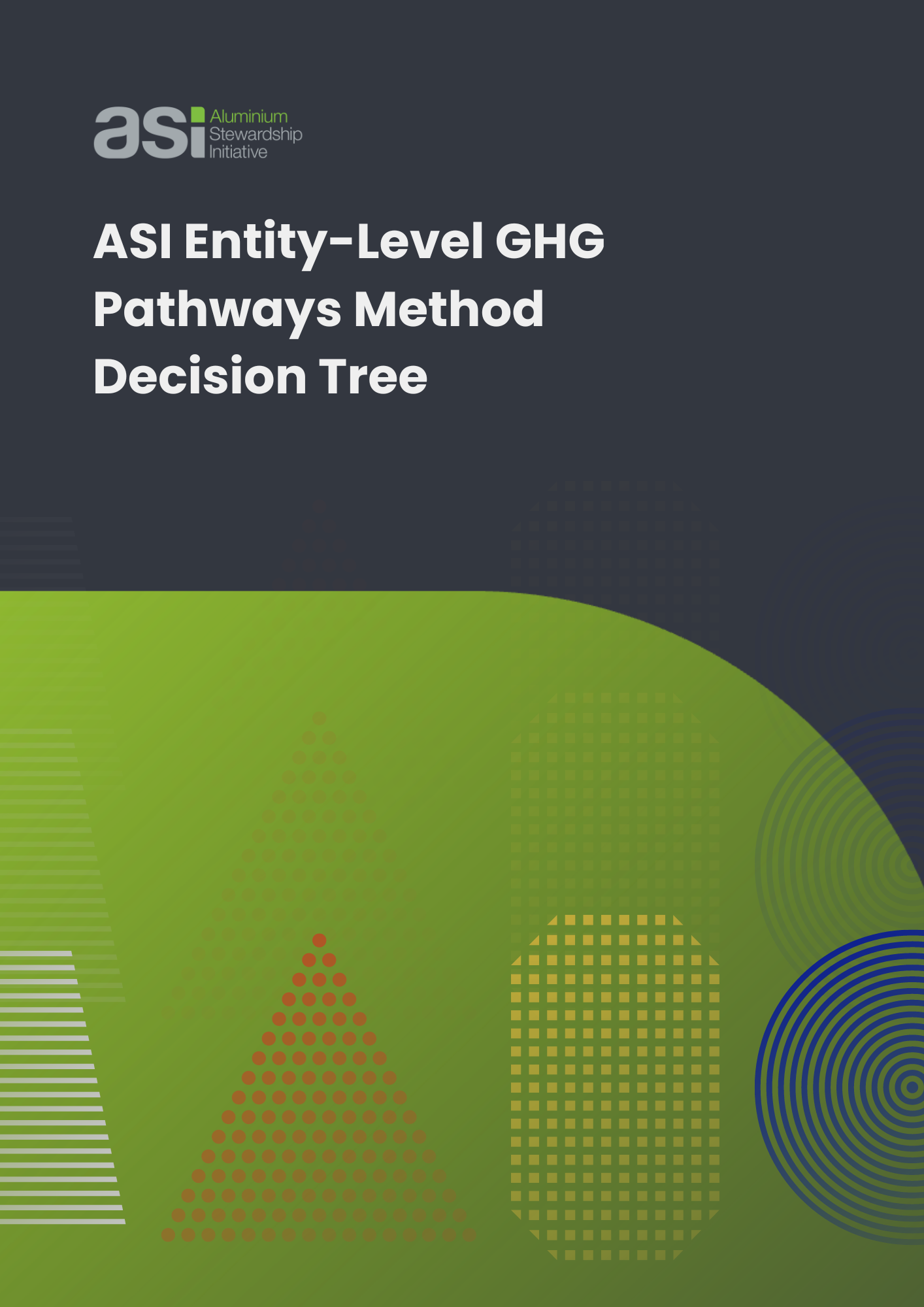
DOWNLOAD
The sustainability elements covered
There are 11 principles in the Standard, addressing:
- Business integrity
- Policy and management
- Transparency
- Material stewardship
- Greenhouse gas emissions
- Emissions, effluents and wastes
- Water
- Biodiversity
- Human rights
- Labour rights
- Occupational health and safety
Applicability
ASI’s standards are globally applicable and encompass all stages of the aluminium value chain: primary aluminium production (including bauxite mining, alumina refining and aluminium smelting), semi-fabrication and material conversion processes, recycling, and use in final products.
How it applies to ASI members
ASI Members in ‘Production and Transformation’ and ‘Industrial Users’ membership classes are required to have some part of their business certified against the ASI Performance Standard within two years of joining ASI.
Access versions and translations
A revised version of the Performance Standard (V3) was published in May 2022 and is the only version eligible to be used for new and re-certifying ASI Certifications.
2017 Standards (archive)
The first versions of ASI’s Standards and supporting documents were launched in 2017. The documents linked below are made available here for reference only as they are now superseded by the 2022 versions, which can be accessed in the Document Centre.
ASI Limitation of Liability Disclaimer
Organisations that make ASI-related claims are each responsible for their own compliance with Applicable Law, including laws and regulations related to labelling, advertisement, and consumer protection, and competition or antitrust laws, at all times. ASI does not accept liability for any violations of Applicable Law or any infringement of third-party rights (each a Breach) by other organisations, even where such Breach arises in relation to, or in reliance upon, any ASI Standard, document or other material, recommendation or directive issued by or on behalf of ASI. ASI gives no undertaking, representation or warranty that compliance with an ASI Standard, document or other material, recommendation or directive issued by or on behalf of ASI will result in compliance with any Applicable law, or will avoid any Breach from occurring.
SHARE THIS PAGE:


